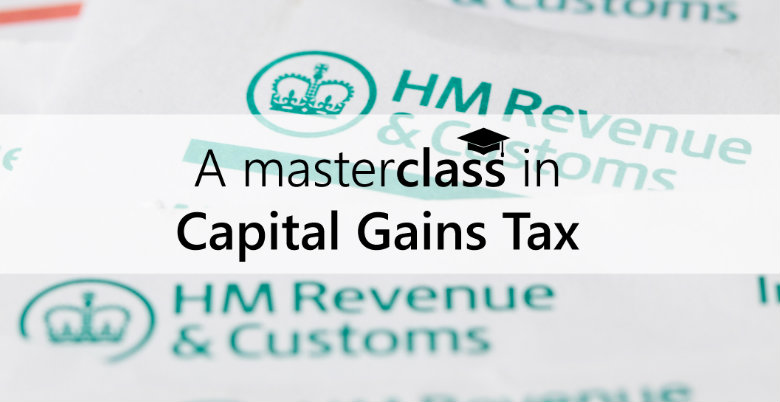The next series of webinars, presented by our team of experts, will focus on the topic of Capital Gain Tax (CGT). Our first webinar in the series will provide an initial guide on CGT, discussing what the allowance is, the reliefs available to your clients and when they are applicable.
What is CGT?
Capital Gains Tax, or CGT, was first introduced in 1965 on gains made on the disposal of assets by individuals, personal representatives and trustees. CGT is a tax on profit when certain assets that have increased in value are sold (or ‘disposed of’). It is the gain or profit made that is taxed, not the total amount of money received.
When does CGT apply?
CGT applies when your client sells, gives away, exchanges or otherwise disposes of certain assets. They may be subject to CGT on disposals of assets located anywhere in the world, not just in the UK. The rules are different depending who on receives the gift, and there are some special reliefs in relation to business assets.
Typical assets that may be liable for CGT:
Investments – this includes shares, bonds (but not usually Investment Bonds) and other securities that are held outside a tax wrapper (CGT is not payable for ISAs and PEPs)
Second homes – properties in the UK that are not the main home such as holiday homes and buy-to-let properties
Overseas property – if the client is resident in the UK for tax purposes
Sale of an inherited property – CGT is calculated as the difference between the value when inherited, and when sold
Sale of a business – when a client has 5% or more of the shares in the company they may qualify for Entrepreneur’s Relief, which reduces the CGT rate
Valuable personal possessions – items including jewellery, antiques, paintings that are sold for more than £6,000 attract CGT
What rate is CGT charged at?
Since April 2016, four different rates of CGT exist, these vary dependent on the asset that has made a profit and the income tax rate of the seller. If a capital gain on an asset that is not a property:
- Basic-rate taxpayers pay CGT at 10%
- Higher-rate taxpayers and additional-rate taxpayers pay CGT at 20%
If personally they have made a capital gain on a second home or buy-to-let investment or other land and buildings:
- Basic-rate taxpayers pay CGT at 18%
- Higher-rate and additional-rate taxpayers pay CGT at 28%
What is the annual exemption?
Each tax year, most individuals who are resident in the UK are allowed to make a certain amount of capital gains before they have to pay CGT. This is because they are entitled to an annual tax free allowance, called the annual exemption or annual exempt amount.
For 2017/18, the tax-free allowance is £11,300. Any unused exemption cannot be carried forward but losses can and therefore should be recorded.
What reliefs are available and when do they apply?
There are reliefs available to your clients to reduce or postpone their liability to Capital Gains Tax (CGT). These include:
- Private Residence Relief
- Entrepreneurs’ Relief
- Business Asset Rollover Relief
- Incorporation Relief
- Holdover Relief (Business / Personal)
Our next webinar will discuss all of the above, ensuring you are providing the best advice for your clients and you are equipped with the knowledge you need when dealing with professional introducers.
Countrywide Tax & Trust Corporation Limited are experts in providing advice on all aspects of tax planning and the use of Trusts. We will discuss the reliefs available in detail and explain the most effective planning you can put in place to reduce your client’s Capital Gains Tax liabilities, including those arising in clients Trusts.
Register now to reserve your free place
All webinars commence at 10am and finish at 11am
Why not register early?
Book your space early to avoid disappointment on our next series of webinars covering Capital Gains Tax.
CGT Planning & Trusts
This webinar will focus on Capital Gains Tax Planning and Trusts, discussing if and when CGT may need to be paid and the reliefs available through Trusts.
CGT for Clients with Additional Properties
This webinar will focus on those clients who have additional properties, explaining in detail how CGT on property works, how much your clients could pay and how they can reduce their CGT liabilities.
Join our LinkedIn Discussion Group
Our Estate Planning experts will address all of the questions raised during the webinar and any further queries relating to the topics covered.
Become part of our growing community of Supermen members.
Share your opinions, questions and knowledge with us.
Click here to join
This article was submitted to be published by Countrywide Tax & Trust Corporation Ltd. as part of their advertising agreement with Today’s Wills and Probate. The views expressed in this article are those of the submitter and not those of Today’s Wills and Probate.




















